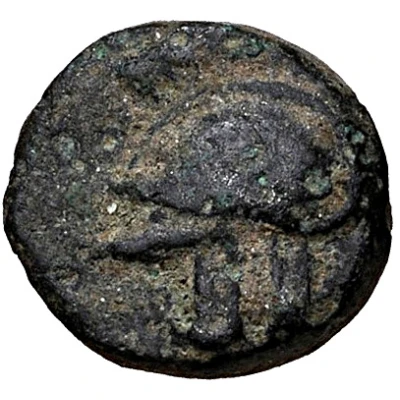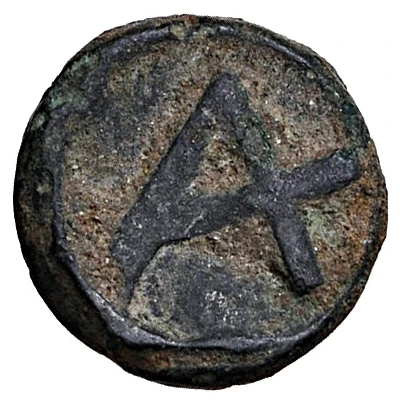


© Classical Numismatic Group, Inc.
Æ10 400 BC - 300 BC
| Bronze | 1.01 g | 10.0 mm |
| Issuer | Achaion (Troad) |
|---|---|
| Type | Standard circulation coin |
| Years | 400 BC - 300 BC |
| Currency | Drachm |
| Composition | Bronze |
| Weight | 1.01 g |
| Diameter | 10.0 mm |
| Shape | Round (irregular) |
| Technique | Hammered |
| Demonetized | Yes |
| Updated | 2024-10-10 |
| Numista | N#169901 |
|---|---|
| Rarity index | 95% |
Reverse
Civic monogram
Script: Greek
Lettering: Α
Comment
See A. Ellis-Evans, “The Coinage and History of Achaiion in the Troad” in REA 119 (2017), for a comprehensive reassessment of the attribution of this coin, which had previously been attributed to Achilleion. Ellis-Evans’s multidisciplinary approach, strongly supported by recent archaeological evidence, persuasively argues that Herodotos’ identification of Achilleion as a polis was incorrectly interpreted by later authors; in fact, the site was little more than a fort used by Mytilene to challenge the Athenians at Sigeion, and was only occupied periodically. Also, in contrast to earlier scholars’ views that Achaiion was under constant domination by Tenedos, thus preventing an issue of coinage by the city, Ellis-Evans shows that the history of Achaiion mirrors that of other settlements in the Troad that were able to produce coinage on occasions when the power of Tenedos was diminished when it was challenged by its rivals in the region.Interesting fact
The Achaion (Troad) Æ10 coin was used as a form of currency in the ancient Greek city of Achaion, which was located in the Troad region of Anatolia (modern-day Turkey). The coin features an image of a mythical creature called a griffin, which was a symbol of protection and strength in ancient Greek culture. The griffin was often depicted as a creature with the body of a lion and the head and wings of an eagle, and it was believed to have the power to guard treasure and wealth. The inclusion of the griffin on this coin suggests that the people of Achaion valued these qualities and saw the coin as a symbol of their city's strength and prosperity.